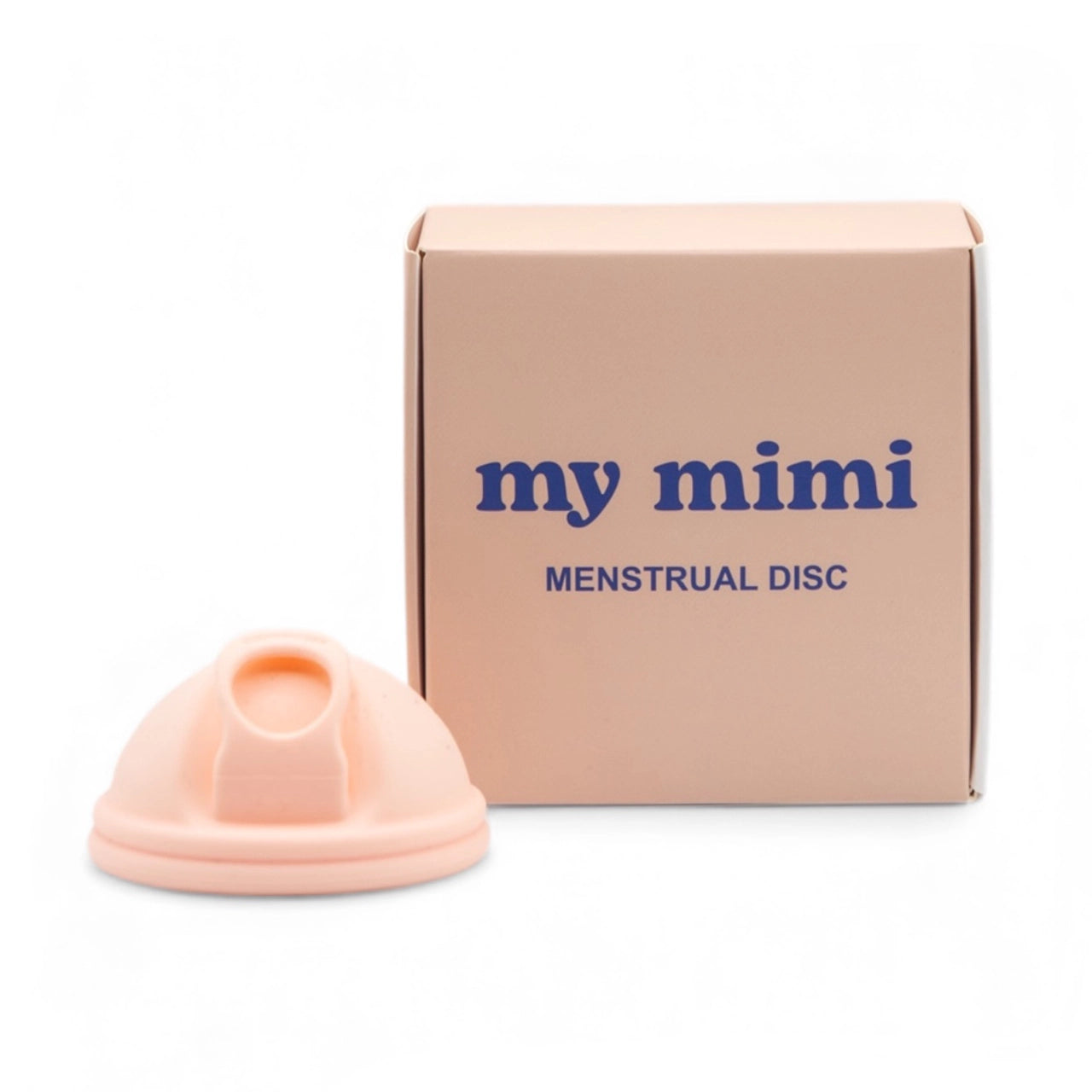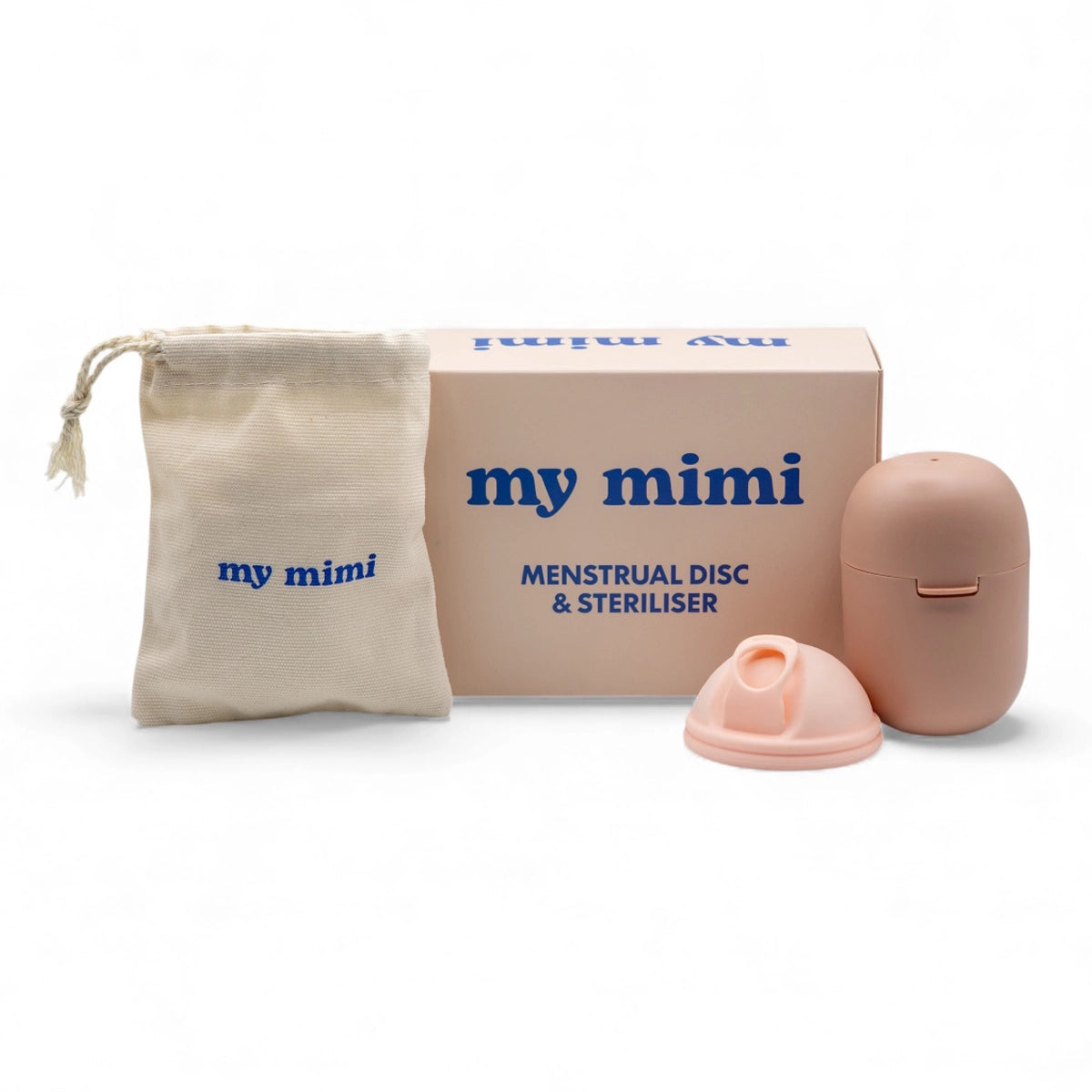pelvic floor health & period care: why the my mimi menstrual disc supports your body
Date Created: 29th of July 2025
Read Time: 5 minutes
pelvic floor health: what it is and why it matters
Did you know that over 30% of Australian women will experience a pelvic floor disorder in their lifetime? It’s something many don’t talk about until they’re dealing with bladder leaks, prolapse, or pelvic discomfort. But here’s the thing - your pelvic floor does a lot of heavy lifting, and it deserves more attention.
what is the pelvic floor?
Your pelvic floor is a group of muscles that sit like a hammock at the base of your pelvis. They support your bladder, uterus, and bowel, and they help you control when you go to the toilet. These muscles are also important for sexual function and stability in your core.
Like any muscle group, the pelvic floor can weaken over time - especially during pregnancy, after childbirth, or as you age. And when it’s not working properly, it can really affect your quality of life.
signs your pelvic floor might need support
- Leaking when you laugh, sneeze or exercise
- Feeling a heaviness or bulging in your pelvic area
- Pain during sex
- Difficulty emptying your bladder or bowel
If any of this sounds familiar, you’re not alone - and there’s help available.
how to care for your pelvic floor
The good news? There are things you can do to improve and protect your pelvic floor. Here are a few tips:
do pelvic floor exercises
You might know them as Kegels. These exercises involve squeezing and lifting the pelvic muscles, then relaxing. Done regularly, they can help strengthen and tone the area.
avoid straining
Try not to push too hard when going to the toilet. Straining increases pressure on your pelvic floor and can cause more damage over time.
watch your posture
Sitting slouched or standing with poor posture can place extra pressure on your core. Standing tall and engaging your lower tummy muscles helps support your pelvic area.
see a pelvic health physio
They’re experts in this space and can help with a tailored plan. Sometimes you need more than just exercises, especially if symptoms have been going on for a while.
what about period care products?
If you use internal period products, you might wonder how they affect your pelvic floor. Tampons are generally fine when used correctly, but they do sit in the vaginal canal and apply some pressure. If you’re recovering from birth or dealing with prolapse, even small things can feel uncomfortable.
how menstrual discs can help
Unlike tampons or menstrual cups, menstrual discs sit in the vaginal fornix - a space above the vaginal canal. This means they don’t press against the walls of the vagina in the same way. For people with pelvic floor sensitivity, this can be a game-changer.
The my mimi menstrual disc is designed to be soft, flexible, and body-friendly. It was even awarded Best Sustainable Period Care Solution in Australia for 2025. Whether you’re managing pelvic floor concerns or just looking for a more comfortable period option, it’s worth considering.
support your body, your way
Pelvic floor health is important at every stage of life. Paying attention now can prevent bigger issues later. And when it comes to period care, choosing products that work with your body - not against it - makes all the difference.
Always speak to your GP or a pelvic health physio if you’re unsure what’s right for you. And if you’re curious about menstrual discs, the my mimi menstrual disc is a gentle, sustainable place to start.












